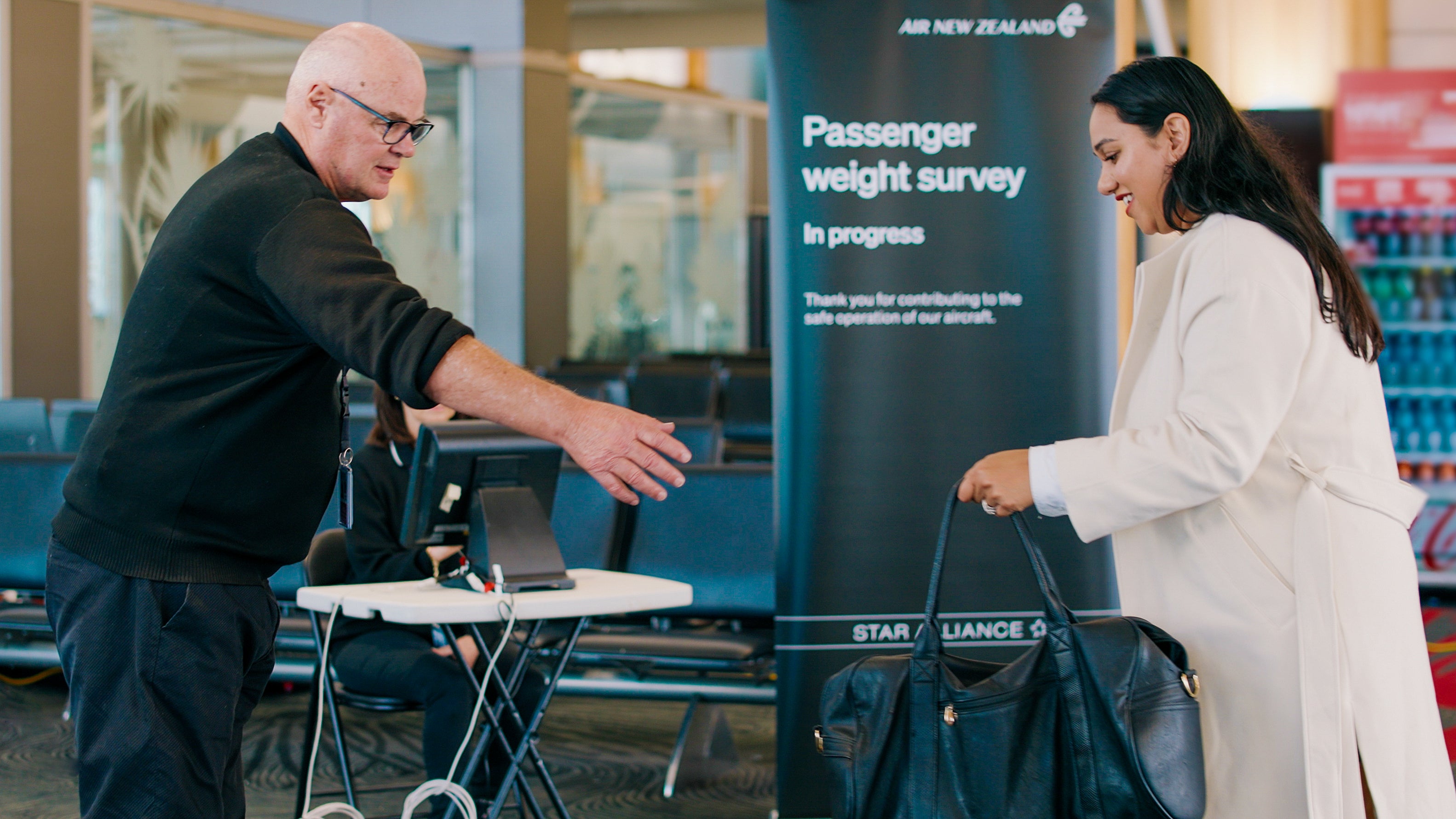Should plus-size travellers be asked to take weight-loss drugs for flights? It’s plane crazy
A new report analysing the business benefits of weight-loss ‘wonder drugs’ like Ozempic crows that carriers could save millions of dollars a year if obese passengers slim down. Rose Stokes, who has experienced the trauma of flying as a plus-size traveller, explains why framing the issue in economic terms is hugely damaging — as well as misleading


There is not one thing I dread more as a plus-size person than flying. It has nothing to do with a fear of flights and absolutely everything to do with the fact that aeroplanes are not built with bigger-bodied people in mind.
The idea of getting on a plane provokes in me a sort of low-level dread from the moment I book the tickets until I step off the aircraft having arrived at my destination. If there’s a return trip involved, it will be on my mind throughout the entire duration of my holiday. Will I fit in the seat? Will the belt be big enough? Will I be comfortable? Will the person next to me groan as I sit down?
Thankfully, in my case, none of these worries are based on any actual experiences, and have never come to pass. But I’ve seen enough viral videos and photos online taken by – presumably naturally slim – people on planes and trains seeking to mock or complain about their larger co-passengers to feel my fears are at least somewhat legitimate.
Pluz-size travellers too have highlighted the issue; earlier this year, influencer Jaelynn Chaney called for bigger airline seats on US jets after she was left with bruises from the armrests on a flight. Alongside a petition for America’s Federal Aviation Authority to make flights “comfortable and accessible for everyone”, including “larger people”, she wrote: “As plus-size travellers, my partner and I have unfortunately experienced discrimination and discomfort while flying. During a flight from Pasco to Denver, my fiance was subjected to hateful comments, disapproving looks, and even refusal to sit next to them, amounting to discrimination. Similarly, on another flight, I was forced to occupy only one seat with immovable armrests that caused me pain and bruises.”

And so recent headlines celebrating how much money airlines could save in fuel costs if passengers all took the so-called weight-loss wonder drug, Ozempic, not only feel – rightly or wrongly – like a personal attack both on me and my fellow plus-size travellers but also pretty dystopian, to be honest.
It’s no secret that airlines are often looking for ways to reduce plane weight in order to improve the fuel efficiency of their flights – as anyone who’s ever been caught on the wrong side of the luggage scales can tell you. According to Sheila Kahyaoglu, a financial analyst at Jeffries, though, it’s not just lighter suitcases that airlines can benefit from. In a recent report on the implications of a “slimmer society,” in reaction to the boom in Ozempic and other weight-loss drugs, Kahyaoglu, an aerospace, defence and airlines equity research analyst, turned her attention to the potentially positive financial impact of these drugs if used by passengers.
By using United Airlines as a model, she estimated that if each passenger on one of the carrier’s flights were to lose 10lb, this would amount to an overall reduction in weight of 1,790lb per flight, which she believes could save 27.6 million gallons of fuel per year, or around $80m based on this year’s fuel prices.
By now, you’ve probably heard about the headline-grabbing weight-loss “wonder drug” Ozempic (or Wegovy as it is also known). But if you’re lucky enough not to have done, it started as a treatment for use among patients suffering from type 2 diabetes and mimics a hormone, GLP-1, which is released in the brain after eating, serving the function of reducing appetite and increasing feelings of satiety. The treatment involves injecting a substance known as semaglutide into your torso once a week, and many of those who have done so have reported fairly significant weight loss.
It’s a funny feeling to exist in a body that everyone seems so hell-bent on making disappear
And so, as you’d expect, it soon caught the attention of those looking for an “easy fix” to the “obesity epidemic” – and the rich and famous, for whom maintaining a slim physique is a constant preoccupation. Since the Food and Drug Administration approved its use in 2021 in the US as a tool for weight loss, it has rapidly become a favourite of celebs and politicians alike. In the UK, it is still only used within the NHS to treat type 2 diabetes, but a boom in prescriptions both from online pharmacies and medical practitioners working in the private sector has led to a shortage of the drug on this side of the Atlantic. If nothing else, this is pretty awful for those who need the drug to manage their condition.
As someone who proactively tries to avoid reading news stories and articles discussing obesity, because of the way they tend to oversimplify what I know to be an extremely complex issue, I felt particularly aggrieved by this latest assessment that we should all be on weight-loss drugs simply so that airlines can improve their bottom line without having to change a thing.
Maybe it’s because flying as a plus-size person already feels like such a charged subject, maybe it’s because I’m so sick of the way overweight people are so often painted as problems to be solved – it’s frankly dehumanising – or maybe it’s because I was due to fly the very week the story was published. Whatever the reason, the framing of the report and subsequent headlines felt all wrong to me.

It’s a funny feeling to exist in a body that everyone seems so hell-bent on making disappear. And what I have witnessed with the sudden boom of Ozempic across the world is a lot of people happily parading their own internalised fatphobia – suddenly no one has to be overweight any more! Thank goodness! This type of magical thinking, which seeks to provide a neat solution to what is, in reality, an incredibly nuanced, complicated and multifaceted topic, has the adverse effect of compounding the idea that those who are heavier have only themselves to blame.
But the thing is, the amount a person may weigh at any given time depends on a variety of factors. The amount of food they eat and how much they exercise, yes, but also the quality of the food that’s available to them; their genes; their gut health; their stage of life; their emotional health; access to fitness options; their physical abilities; how much sleep they get... the list goes on. It’s obvious that, more than anything else, weight is a social issue. Of course, this has a knock-on impact on economics. But approaching it from the perspective of how much businesses stand to gain financially from the blind promotion of weight-loss drugs is just plain distasteful.
That’s before you even consider the potential impact that taking these could have on a person’s long-term health. A quick Google search for “Ozempic side effects” reveals that there are many: nausea, vomiting, diarrhoea, as well as pancreatitis and problems with vision in extreme cases. And those are just the ones we know about; given the explosion in widespread use over the past couple of years, it feels too soon to say with confidence that this is a completely safe drug for use in weight loss.
Do we really still, in 2023, need to remind businesses to value people ahead of profit?
Before jumping on the bandwagon in the blind pursuit of profit, airlines should consider whether or not there is a moral case to answer in promoting its use. Do we really still, in 2023, need to remind businesses to value people ahead of profit? To see people beyond simply a number on a P&L? To see the human behind the data point?
Knowing as I do how hard it is living in a world in which weight discrimination is rife and in which so many still mistakenly believe that thin automatically equals healthy (and, in some cases, “morally superior”), I am well aware of just how damaging headlines like this can be – and not just for fat people. Weight stigma has been shown time and time again to cause widespread harm among the population at large – affecting both the mental and physical health of millions of people worldwide. For example, anorexia has the highest mortality rate of any psychiatric disorder in the UK, according to Beat, an eating disorder charity.
Instead, economists should be using their skills to take a more broad and considered multipronged approach that reflects the complexity of this issue, rather than sticking their boots into a group of people who are so often maligned in society and who already experience so much day-to-day discrimination – especially on aeroplanes.






Join our commenting forum
Join thought-provoking conversations, follow other Independent readers and see their replies
Comments